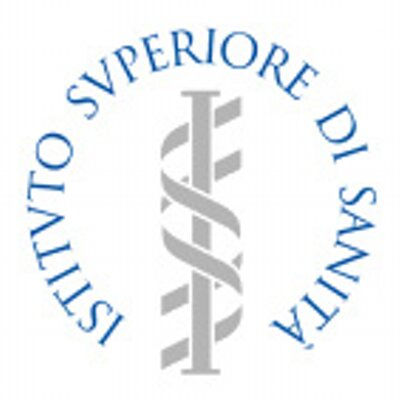预约演示
更新于:2025-12-02
Cholera toxin B subunit (Istituto Superiore di Sanità)
更新于:2025-12-02
概要
基本信息
非在研机构- |
权益机构- |
最高研发阶段临床前 |
首次获批日期- |
最高研发阶段(中国)- |
特殊审评- |
关联
100 项与 Cholera toxin B subunit (Istituto Superiore di Sanità) 相关的临床结果
登录后查看更多信息
100 项与 Cholera toxin B subunit (Istituto Superiore di Sanità) 相关的转化医学
登录后查看更多信息
100 项与 Cholera toxin B subunit (Istituto Superiore di Sanità) 相关的专利(医药)
登录后查看更多信息
321
项与 Cholera toxin B subunit (Istituto Superiore di Sanità) 相关的文献(医药)2025-12-31·Human Vaccines & Immunotherapeutics
An mRNA vaccine candidate encoding cholera toxin subunit B and conserved antigens of influenza viruses confers cross-protection against influenza a viruses in adult and aged mice
Article
作者: Weng, Qian ; Wang, Qin ; Li, Benchi ; Xu, Liang ; Xu, Yifan ; Li, Junwei ; Yi, Yongxiang ; Yu, Zhihao ; Wang, Guiqin
Currently, vaccination with influenza vaccines is still an effective strategy to prevent infection by seasonal influenza virus. However, seasonal influenza vaccines frequently fail to induce effective immune protection against rapidly changing seasonal influenza viruses and emerging zoonotic influenza viruses. In addition, seasonal influenza vaccines may not confer potent protection in elderly and immunocompromised individuals. There is an urgent need to develop potent broad-spectrum influenza vaccines to address this problem. Herein, we designed an mRNA-based broad-spectrum influenza vaccine candidate encoding cholera toxin subunit B and conserved antigens of influenza viruses. In both adult and aged mice, this universal influenza mRNA vaccine candidate stimulated robust T-cell and humoral immune responses and conferred effective protection against broad-spectrum influenza viruses in both adult and aged mice.
2025-12-01·JOURNAL OF MEMBRANE BIOLOGY
Design of a Multi-Epitope Vaccine using β-barrel Outer Membrane Proteins Identified in Chlamydia trachomatis
Article
作者: Naqvi, Ilmas ; Hareramadas, B ; Ganta, Satish ; Kapoor, Jahnvi ; Kumar, Sanjiv ; Chhabra, Ravindresh ; Panda, Amisha ; Bandyopadhyay, Anannya
Chlamydia trachomatis is an obligate intracellular Gram-negative pathogen that causes sexually transmitted infections (STIs) and trachoma. Current interventions are limited due to the widespread nature of asymptomatic infections, and the absence of a licensed vaccine exacerbates the challenge. In this study, we predicted outer membrane β-barrel (OMBB) proteins and designed a multi-epitope vaccine (MEV) construct using identified proteins. We employed a consensus-based computational framework on the C. trachomatis D/UW-3/CX proteome and identified 17 OMBB proteins, including well-known Pmp family members and MOMP. Eight OMBB proteins were computationally characterized, showing significant structural homology with known outer membrane proteins from other bacteria. Sequence-based annotation tools were used to determine their putative functions. B-cell and T-cell epitopes were predicted from the selected proteins. The MEV construct was designed using four cytotoxic T-lymphocyte (CTL) epitopes and 29 helper T-lymphocyte (HTL) epitopes from six OMBB proteins, which were conserved across 106 C. trachomatis serovars. To enhance its immunogenicity, the vaccine was supplemented with the Cholera toxin B subunit and PADRE sequence at the N-terminus. The MEV construct, of length 780 amino acids, was predicted to be antigenic, non-allergenic, non-toxic, and soluble. Secondary structure analysis revealed 95% random coils. A three-dimensional structural model of the MEV was generated and subsequently validated. Molecular docking between MEV and toll-like receptor 4 (TLR4) revealed strong and stable binding interactions. The MEV-TLR4 complex was found to be structurally compact and stable using molecular dynamics simulation. Immune simulation of the MEV construct elicited a strong immune response. This study highlights OMBB proteins as promising immunogenic targets and presents a computationally designed MEV candidate for C. trachomatis infection.
2025-06-01·Bioinformatics and Biology Insights
Immunoinformatics-Aided Design of a Multiepitope Vaccine Against
Eimeria Tenella
-Associated Chicken Coccidiosis
Article
作者: Adebayo, Abayomi I ; Fadahunsi, Adeyinka I ; Chineke, Clifford A ; Atansuyi, Adewale J
Avian coccidiosis, caused by Eimeria protozoa, presents a significant threat to poultry, with
Eimeria tenella
being particularly harmful due to its impact on the chicken cecum. Growing resistance to current treatments necessitates alternative therapeutic approaches. Consequently, this study employed an immunoinformatics approach to design a multiepitope vaccine targeting
E tenella
. Key proteins, including the sporulated oocyst TA4 antigen, alkylglycerone-phosphate synthase, and apical membrane antigen-1, were analysed for epitope prediction. Further comprehensive downstream analysis identified 13 MHC class I, 6 MHC class II, and 7 B-cell epitopes, which were linked with suitable linkers. Also, cholera toxin subunit B was incorporated as an adjuvant, creating a 531-amino-acid construct. The vaccine demonstrated favourable predicted antigenicity, non-allergenicity, and stability properties. Molecular docking predicted interaction with toll-like receptor 15, while immune response simulation showed potential induction of various immunocytes, including helper and cytotoxic T-cells, natural killer cells, and immunoglobulins. The vaccine was predicted to promote antigen clearance after the second dose, suggesting strong memory response potential. These findings indicate the designed vaccine could stimulate a potent protective immune response against
E tenella
infection. However, further in vitro and in vivo validation studies are necessary to confirm the vaccine’s efficacy before clinical application in poultry immunization programmes.
100 项与 Cholera toxin B subunit (Istituto Superiore di Sanità) 相关的药物交易
登录后查看更多信息
研发状态
10 条进展最快的记录, 后查看更多信息
登录
| 适应症 | 最高研发状态 | 国家/地区 | 公司 | 日期 |
|---|---|---|---|---|
| 克罗恩病 | 临床前 | 意大利 | 2005-11-01 |
登录后查看更多信息
临床结果
临床结果
适应症
分期
评价
查看全部结果
| 研究 | 分期 | 人群特征 | 评价人数 | 分组 | 结果 | 评价 | 发布日期 |
|---|
No Data | |||||||
登录后查看更多信息
转化医学
使用我们的转化医学数据加速您的研究。
登录
或

药物交易
使用我们的药物交易数据加速您的研究。
登录
或

核心专利
使用我们的核心专利数据促进您的研究。
登录
或

临床分析
紧跟全球注册中心的最新临床试验。
登录
或

批准
利用最新的监管批准信息加速您的研究。
登录
或

生物类似药
生物类似药在不同国家/地区的竞争态势。请注意临床1/2期并入临床2期,临床2/3期并入临床3期
登录
或

特殊审评
只需点击几下即可了解关键药物信息。
登录
或

生物医药百科问答
全新生物医药AI Agent 覆盖科研全链路,让突破性发现快人一步
立即开始免费试用!
智慧芽新药情报库是智慧芽专为生命科学人士构建的基于AI的创新药情报平台,助您全方位提升您的研发与决策效率。
立即开始数据试用!
智慧芽新药库数据也通过智慧芽数据服务平台,以API或者数据包形式对外开放,助您更加充分利用智慧芽新药情报信息。
生物序列数据库
生物药研发创新
免费使用
化学结构数据库
小分子化药研发创新
免费使用
